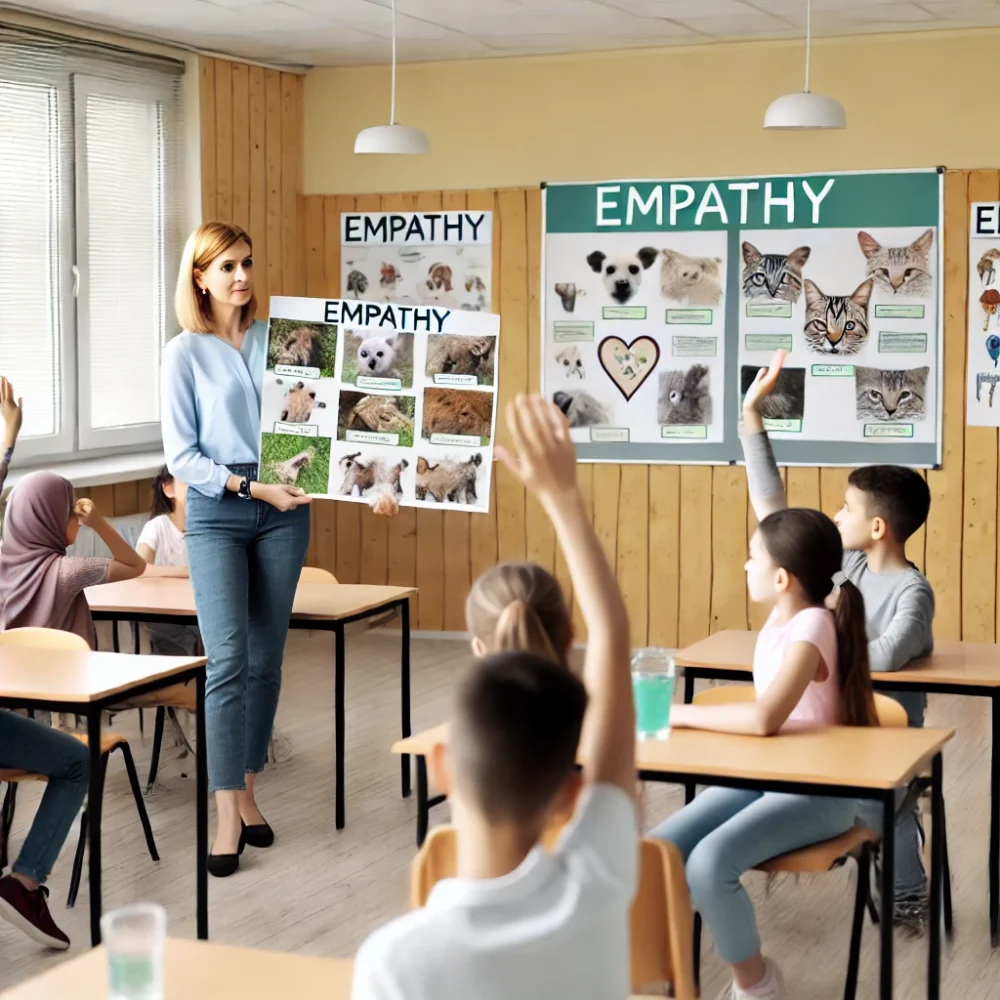IN RECENT DAYS, AN IMPORTANT CONFERENCE WAS HELD AT THE AUDITORIUM IN ROME “RESPECT FOR ANIMALS AND DEVELOPMENT OF EMPATHY: WHAT ROLE FOR THE TEACHER?”. THE EVENT, ORGANIZED BY THE LAV (ANTI-VIVISECTION LEAGUE) WITH THE SUPPORT OF THE MINISTRY OF EDUCATION AND MERIT, AIMED TO EXPLORE THE ROLE OF EDUCATORS IN PROMOTING RESPECT FOR ANIMALS AND IN DEVELOPING EMPATHY AMONG STUDENTS. THIS INITIATIVE IS PART OF A LARGER CONTEXT OF AWARENESS-RAISING ON THE ISSUES OF CIVIC EDUCATION, RECENTLY UPDATED WITH NEW OBJECTIVES RELATED TO RESPECT FOR ANIMALS
A conference on empathic responsibility to train aware educators
The meeting offered a space for reflection and in-depth analysis on how education to respect animals can become a fundamental component of the school curriculum. Paola Frassinetti, Undersecretary of Educationopened the conference with a speech that highlighted the connection between the recent “Guidelines for’teaching of’civic education” and the importance of education aimed at animal protection.
Specifically, the indications aim to make students understand the intrinsic value of animals, not only in terms of conservation of biodiversitybut also as sentient beings deserving of protection and rights. Among the most significant innovations introduced in the guidelines, there is the inclusion of educational modules that deal with animal rightsraising awareness against mistreatment, education in empathy and the promotion of responsible behaviors towards ecosystems. The objective is to build a civic conscience that recognizes animals as an integral part of the world we live in, developing a non-speciesist and more inclusive approach.
Through these new provisions, teachers are therefore invited to integrate themes related to the protection of animals into their teaching, not only from an ethical but also a legislative point of view, introducing young people to the knowledge of national and international laws for the protection of animals.
These issues are fundamental not only for the development of respect for nature, but also for the formation of more empathetic citizens who are aware of their role within the community and the planet.
Empathy and ethics
During the conference, experts in biology, ethics and law analyzed how the legislation on animal rights integrates with the provisions of the Italian Constitution, illustrating the progress in their protection. In particular, they highlighted how the laws are strengthening the recognition of animal rightsthus promoting a model of ethical and conscious coexistence.
The speakers also highlighted the importance of treating animal rights education not only from an ethical point of view, but also from a psychological one.
They explained how this type of education can prevent juvenile deviance, promoting respect for all forms of life in young people.
This type of training not only helps prevent antisocial behavior, but educates children to greater responsibility and social awareness.
The conference paid particular attention to the ethical and philosophical foundations of empathy education, defined as a “crucial social competence“. Experts have highlighted how the ability to “put yourself in others’ shoesi” allows children to recognize and respect the suffering of others, creating the basis for peaceful coexistence between both humans and animals.
Animal abuse
The theme of animal abuse among minors represented one of the main topics of the conference, analyzed through the data provided by Zoomafia Report 2024. Experts have highlighted how often this deviant behavior occurs symptom of deeper problems and may indicate a predisposition to future violent attitudes.
The data have shown that this type of abuse on living beings, particularly by young people, requires immediate and targeted interventions, to prevent negative consequences not only on the animals, but also on the emotional and social growth of the children involved.
During the debate, it was reiterated that addressing this phenomenon with punitive measures alone is ineffective. Rather, we need an educational approach that actively involves schools, families and institutions, in order to raise young people’s awareness of respect for life.

